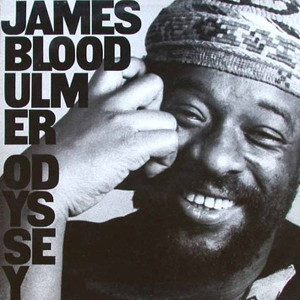After “Life, Interrupted,” New York Times columnist hits the road
By Elizabeth Weinstein
- 97
- 6
- 0
Suleika Jaouad stopped in Columbus last week to visit a retired Ohio State University art history professor, an avid reader.
Nearly four years ago, Howard Crane, an avid reader of The New York Times, happened upon a column by a young writer, Suleika Jaouad, that piqued his interest. The column, “Life, Interrupted,” chronicled Jaouad’s journey after she was diagnosed with an aggressive form of leukemia at age 22.
Throughout three years of treatment, the Princeton University graduate wrote regularly and honestly about life as a young adult whose dreams of becoming a war correspondent were derailed as she fought her own personal war – against cancer.
Jaouad’s column evoked memories for Crane, a retired Ohio State University art history professor and an expert in the field of Islamic art and architecture. So one day in 2012, from his home in northwest Columbus, he sat down and wrote her a long email.
“I was moved by what she wrote,” Crane said of Jaouad. “Although I never had cancer, her experience mirrored my own illness 40 years or so earlier. The expectation was that I wasn’t going to live, but [I was given] another half century of life. I just wanted to let her know that remarkable things can happen.”
Crane wrote to Jaouad about his years as graduate student at Harvard University in the early 1970s. He spent time in Afghanistan researching Islamic archaeology, and while there, developed a mysterious, life-threatening illness that was never definitively diagnosed. After an array of terrifying symptoms (including temporary blindness and lingering problems with his bone marrow and his hearing), and a near-death experience, he miraculously recovered.
He wasn’t certain that Jaouad ever received his email, and he had no expectation of a response if she did. Then, six weeks ago, Crane opened up his email to find a note waiting for him from Jaouad. He was floored and excited to learn that not only had she read and held onto his original email, but that she was preparing to embark on a 100-day road trip across the U.S. – including a brief stop in Columbus – and wanted to meet him while she was in town. Immediately, he invited Jaouad to stay with him and his wife, Meral, in their home for as long as she wanted. And she did, last week, for two nights.
“One of the first letters I received was from [Crane]. It’s one of the letters that have stuck with me all these years,” Jaouad said by phone from Detroit – her destination after Columbus. “His was just beautifully written … and it was just so moving. He told me, ‘If you believe in prayer, you will be in mine.’ ... I never responded to that letter, because I wasn't well enough to do so – I was undergoing a bone marrow transplant at the time. But I thought about it and I wondered how he was doing.”
This past year, Jaouad finished her cancer treatment and is now in remission. Though ecstatic for a second chance at life, she said she found the experience of survivorship to be unexpectedly challenging.
“When you're sick, there are protocols to follow and things to do, and you have a medical team and family rallying around you. And I think when the emergency passes, you're kind of released back out into the world and told to go back to your normal life,” she explained. “But figuring out what that life is and figuring out who you are in the wake of something so devastating and transformative as a life-threatening illness is easier said than done.”
She decided that in order to move forward with her life, she needed to literally move forward, by car. So, the New York resident took driver’s ed lessons, got her license and decided to embark on the first road trip of her life, in the form of a “100 Day Project,” which she described recently in a Times article.
“The goal of this road trip has been traveling and getting back into the driver's seat of my own life. And it is also to visit and learn from unexpected strangers who wrote to me in response to my column when I was sick,” she said. “I was just really excited by the idea of breaking the fourth wall of the Web and just having a genuine, human interaction with them and simply thanking them for the support they gave me. And maybe also writing more about their stories in the hope of learning from them as I find my way forward.”
She arrived at the Crane residence last Wednesday evening (day 20 of her adventure) with her service dog, Oscar, in tow.
“We had never met before, but they were just incredibly gracious,” Jaouad said of the Cranes. “I had a really powerful and moving experience with them, and also got to visit Columbus.”
The three of them talked for many hours and shared their experiences over Turkish food and a tour of Ohio State’s campus. Jaouad also explored German Village and snapped a photo at the Book Loft for her popular Instagram feed, which she has used to document her travels, as well as to solicit recommendations for restaurants and places to visit in different cities.
“The whole visit was a highlight,” Crane said of his time with Jaouad, with a smile. “She’s a wonderful, vital and aware person.”
Illness, he added, “brings to your life all sorts of strange and wonderful things – if you survive.” And when survivors from different generations come together to share their stories, the results can be transformative for all.
Follow Suleika Jaouad’s “100 Day Project” on Instagram and Twitter (@itssuleika) and Facebook (https://www.facebook.com/SuleikaJaouad) #susuontheroad
copied from columbusalive.com























